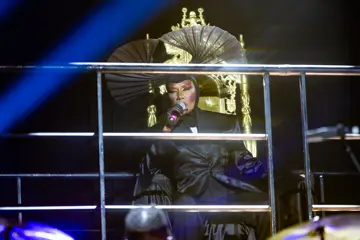In Rémi Bezançon's crowd-pleasin' familial saga The First Day Of The Rest Of Your Life, the French writer-director left off with one of his grown-up children pregnant. It felt, to him, like a dramatic ellipsis, leading towards a subject he'd always wanted to explore. So, when he came across Eliette Abecassis' motherhood memoir A Happy Event, Bezançon found the source text that led to his next movie.
“I'd always been interested in maternity, and, reading this book, it was such a profound portrait of maternity, of how it feels to be a pregnant woman, to give birth, to be a mother,” explains the 41-year-old filmmaker. “Reading it, I had this desire to make a film of this, to go inside the feelings of a woman. I wanted to try and put myself in the experiences of women, and put that into a movie. It was pretty difficult for me to talk about, because I've never had any children myself.”
Adapting the autobiography into a fiction film, Bezançon worked with his own real-life love-interest, Vanessa Portal, turning the confessions of a new mother into a greater study of how the arrival of an infant radically redefines a central relationship. A Happy Event begins as cute romantic comedy, with artfully unkempt beefcake (Pio Marmaï) sweetly wooing the fiery dame (the unendingly charismatic Louise Bourgoin). Yet, their carefree young-coupledom comes undone when our heroine becomes pregnant, fast-tracking their lives from idle, fun-loving and unencumbered to the high-stress hells of new parenthood.
These plot developments turn what kicks off as a frothy rom-com into a frank, halfway-to-brutal relationship drama; A Happy Event's title duly tinged with irony. “I wanted to show something that was more realistic than the presumed happiness that comes with having a child,” Bezançon explains. “I think there's never been a movie that has portrayed maternity in this realistic way. That's why, of course, I wanted to tell this story; to show the world that this is not just a happy event, but that it is really hard. And I wanted to show women that they didn't have to take all this on themselves, to suffer through this by themselves. A lot of women have thanked me for making this movie, because they see it and feel now more understood.”
Don't miss a beat with our FREE daily newsletter
By depicting new motherhood minus the new-age mysticisms of life-giving, by showing how having an infant can be a delirious mixture of transcendent and horrendous, by portraying post-pregnancy perineums and leaking breasts not as comedy but as reality, Benzançon has lost none of the provocative honesty of Abecassis' confession. Does Bezançon feel like he's made a feminist film? “Absolutely!” he beams. “And I'm very happy that you asked that question!”
That provocative honesty – that feminism – has also meant that the film, on its opening in France, raised the hackles of more, um, conservative critics. Blithely skating over taboos – “In France, 20% of marriages don't survive the first year after the birth of a child, but it's something we never talk about” – A Happy Event is anything but inoffensive blandeur. “The reaction to the film has been really extreme,” Bezançon says. “Reviews [in France] were either exceptionally positive or just really angry, very negative. To me, the movie is like a mirror, and the reactions to it reflect the individual, not necessarily the film itself.”















